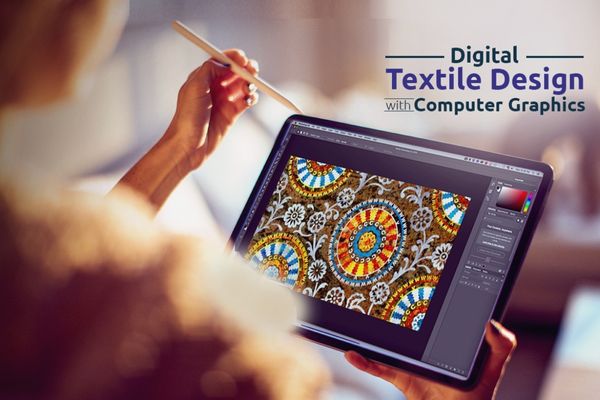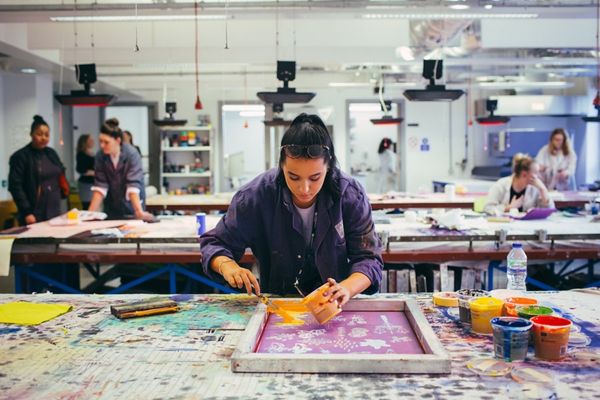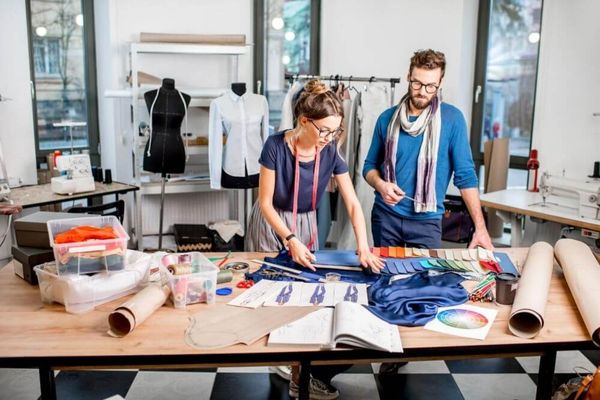The textile industry is huge. It offers great potential for career seekers in this field. This is why studying textile is one of the best decisions for students.
Study textile is a dynamic and exciting field. It offers a wealth of opportunities. It is best suited for individuals with a passion for creativity and innovation. From fashion design to technical textiles, the textile design industry is evolving. It provides a wide range of career options for graduates. The focus in this industry is on creativity. A textile design degree can provide a foundation for a successful career.
Here is the list 5 reasons for studying textile.
Table of Contents
What is textile design?
Textile design is the process of creating materials made of interlacing fibers. Design can encompass a wide range of applications. They include:
1. fashion design
2. interior design
3. product design
4. technical
The process involves creating materials using a variety of techniques. These techniques include drawing and manual textile manipulation
It is the process of creating materials made of interlacing fibers. Design can encompass a wide range of applications. They include:
- fashion design
- interior design
- product design
- technical
The process involves creating materials using a variety of techniques. These techniques include drawing and manual textile manipulation.
1. Explore and experiment with different materials
The first reason for studying textile is an exciting field of study. It allows you to express creativity and innovation through the manipulation of textiles. You can experiment with patterns and stitches to create a unique product. Within the textile and fashion industry, the possibilities are endless.
You can create pieces that capture the beauty of art. Or you can use traditional methods while bringing in your flair. Studying textile design gives you the tools to try new things and push boundaries. It also shows the student how to write on PowerPoint slides through material play. Textile education with the help of EduBirdie presentation writing examples is valuable. Such manual teaching opens countless possibilities within the creative process. Through presentation service and writing, you express yourself.

Students can develop new techniques and approaches by working with computer-aided design software. Students learn how to bring out the best in natural fibers. They can also explore more advanced synthetic materials. This kind of learning experience allows students to discover a world of potential.
What is a textile designer?
Designers have an understanding of the properties of materials and fibers. They also have an eye for color, texture, and pattern. The goal is to create functional and aesthetic textiles. They use them for clothing, accessories, home furnishings, and technical production.

2. Study Textile offer Hands-on learning opportunities
Hands-on learning opportunities are a critical component of programs. Textile study allow students to apply what they have learned. It helps in real-world design projects. This hands-on learning experience is essential. It backs students to develop a strong portfolio.
Studio projects and workshops involve working on challenges. They simulate real-world scenarios. It is necessary to develop innovative solutions. Students must use their creativity, problem-solving skills, and technical knowledge. It demonstrates their ability to create unique and functional textiles.

Design programs allow students to work on collaborative projects with peers or clients. This provides them with experience in collaborating with others on real-world design challenges. Some programs have access to fabrication labs. Students can use specialized equipment and materials to bring their designs to life.
Programs offer opportunities to take part in internships or real-world projects. This provides them with experience and professional connections. With it, they can launch their careers.
3. Make an environmental impact
Textile is a unique field of study. It opens many doors for individuals looking to make an environmental impact. With a B.Sc./ M.Sc. in textile degree, students gain the knowledge to create sustainable products. Using sustainable offerings, they can contribute to our planet’s well-being.
Graduates learn the production process through waste-reducing tactics. This influences how people use textiles in a sustainable way. This way, students make more informed choices throughout their work. They can use this knowledge to educate others about sustainability.

Consumers are becoming more conscious. So, there is an increased demand for sustainable textiles. Innovative and sustainable designs can reduce waste and reduce impact. They can learn to cut waste at every stage of the entire lifecycle of the product.
4. Gain vital transferable skills
Recruiters value transferable skills and are looking to hire versatile employees. Textile students get an understanding of myriad materials and techniques. They also develop their artistic eye and get technical expertise. This helps in creating unique pieces.
Through design principles, marketing, and merchandising concepts, students learn key industry-relevant programming languages. Such languages, coupled with PPT designs for education, are necessary for digital artworks. They become equipped with the ability to navigate their career paths.

A textile design degree provides transferable skills that are in demand. It teaches you how to pay attention to little details. It provides you with essential problem-solving skills. And the best is that it introduces you to the world of effective project management.
5. Career options
A degree is an asset for those looking for a career in this lucrative textile industry. Career is one of the reasons of studying textiles. It provides an opportunity to graduate with:
- the knowledge
- expertise
- creative eye
Wearable arts is another area of career options for those who learn about textiles. Students excel in:
- production designing
- trend forecasting
- fashion merchandising
- quality assurance
They are also skilled at fabric styling and interior designing. This offers students incredible experiences due to its collaboration of artistry and science. They customize their professional path based on the textiles they specialize in.
A degree is a gateway to success. That’s because demand for skilled workers is on the rise. This ever-evolving industry is full of a wide range of opportunities. Those who are creative and innovative will do well in this field. It provides the foundation of knowledge and technical skills necessary to succeed.
In a nutshell
The textile design provides the opportunity to develop creativity, technical skills, and knowledge. It offers opportunities and the potential to make an impact on the environment. The knowledge offered is an essential part of preparing for a successful career.

Mahedi Hasan working as an Executive (Fabric Marketing) at Pengnuo Group. Graduated with B.Sc. in Textile Engineering. Before was a Top Rated content writer at Upwork, and Level 02 Seller at Fiverr, Level 02 Publisher at Ezoic. Very passionate about content writing, SEO practice, and fashion website designing. Highly Experienced fashion writer for the last 4+ years. Have extensive 7 years of experience in the wholesale clothing business.
